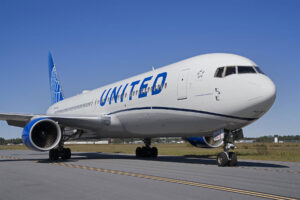TV's that change channels FAST???
#1
FlyerTalk Evangelist
Original Poster
Join Date: Jan 2006
Posts: 11,439
TV's that change channels FAST???
What is it with the flat panel, LCD/LED TV's and the slowness of the channel changing? Older TV's change channels in the blink of an eye but flat panels seem to take 2-3 seconds in some cases, or longer.
Is there a brand than changes channels like the TV of old?
Is there a brand than changes channels like the TV of old?
#2
In Memoriam
Join Date: Feb 2000
Location: Easton, CT, USA
Programs: ua prem exec, Former hilton diamond
Posts: 31,801
Who changes channels on a TV anymore?
Maybe a cable box or satellite dish, but not on a TV.
If it's from a service provider and not the TV, if you google Verizon (or whoever you have) and slow channel changing you will usually find a solution if there is one or others having the same issue and what they have done.
Maybe a cable box or satellite dish, but not on a TV.
If it's from a service provider and not the TV, if you google Verizon (or whoever you have) and slow channel changing you will usually find a solution if there is one or others having the same issue and what they have done.
#3
Suspended
Join Date: Jan 2001
Location: ORD / DUB / LHR
Programs: UA 1K MM; BA Silver; Marriott Plat
Posts: 8,243
As cordelli says above it is almost always a set top box that changes the channel now. But if you're watching OTA digital TV you'll also notice a delay in changing channel. In both cases a big part of this delay comes from the fact that the signal is digital, rather than analog. The video stream doesn't consist of complete versions of every frame but the differences between the current frame and the last, with periodic "key" frames containing the full image. As a result the stream of data that starts to be received by the set top box or TV isn't usable as an image until enough data has been received to assemble a complete frame, and then the movement is continuous from that point. As a result you have up to a second or so of delay once you change the channel.
Some systems are noticeably faster than others - e.g. Verizon FiOS is significantly faster than Comcast cable, and indeed they use this in their marketing collateral as a benefit.
Some systems are noticeably faster than others - e.g. Verizon FiOS is significantly faster than Comcast cable, and indeed they use this in their marketing collateral as a benefit.
#5
Join Date: Oct 2007
Location: Munich, Germany
Programs: Miles&More Blue, SPG Silver
Posts: 3,379
It depends more in the way you receive your signal and if you have some kind of set top box in use. The TV is the last thing that has something o do with the channel changing time.
For example if you have IPTV (ATT Universe for example) it can take longer to switch the channel than for example cable due to the IP Multicast technology used for IPTV. In the old TV world every channel is broadcasted simultaneously to you, meaning the signal of every channel is always available. With IPTV where each channel needs about 2 - 4 Mbit/s (SD- HD) you can not transmit every channel simultaneously. So every time you switch the channel the set top box sends a signal to the IPTV head end to request the new channel. This takes a a while (request has to travel to the head end, head end switches channel for you, signal travels to you). A way to speed up the process is to transmit all channels for example to the DSLAM and the DSLAM does the channel switching.
For example if you have IPTV (ATT Universe for example) it can take longer to switch the channel than for example cable due to the IP Multicast technology used for IPTV. In the old TV world every channel is broadcasted simultaneously to you, meaning the signal of every channel is always available. With IPTV where each channel needs about 2 - 4 Mbit/s (SD- HD) you can not transmit every channel simultaneously. So every time you switch the channel the set top box sends a signal to the IPTV head end to request the new channel. This takes a a while (request has to travel to the head end, head end switches channel for you, signal travels to you). A way to speed up the process is to transmit all channels for example to the DSLAM and the DSLAM does the channel switching.
#6
Join Date: Apr 2001
Location: Austin
Programs: AA P4L, WN, BA, DL, UA, HHonors, IHG
Posts: 3,485
I believe this is indeed correct, that it's the digital signals that are the cause of the delay. It makes hopping through the channels much less pleasurable than with the old analog sets.
#7
FlyerTalk Evangelist
Original Poster
Join Date: Jan 2006
Posts: 11,439
I guess that is my question, is there anyone making a TV set that has fast enough computer internals to make it like the days of old with regards to speed of changing the channels.
#8
Join Date: Apr 2010
Programs: HGP/SPG: Apprentice Kettle; UA/AA/DL: Journeyman Kettle
Posts: 866
If the previous posters are correct about the root cause, the transmission of the data stream is the limiting factor, not the speed of the internals of the receiver/TV. That is to say, if it takes several seconds of data transmission time to collect enough information to build the picture then the delay in switching channels will always be those several seconds regardless of how fast the receiver/TV can process the received data. To put it another way - having a 'faster' TV will not decrease the [perceived] channel change time IF the data transmission speed is the limiting factor.
#9
FlyerTalk Evangelist
Original Poster
Join Date: Jan 2006
Posts: 11,439
If the previous posters are correct about the root cause, the transmission of the data stream is the limiting factor, not the speed of the internals of the receiver/TV. That is to say, if it takes several seconds of data transmission time to collect enough information to build the picture then the delay in switching channels will always be those several seconds regardless of how fast the receiver/TV can process the received data. To put it another way - having a 'faster' TV will not decrease the [perceived] channel change time IF the data transmission speed is the limiting factor.
#10
Join Date: Apr 2001
Location: Austin
Programs: AA P4L, WN, BA, DL, UA, HHonors, IHG
Posts: 3,485
My guess is that the added capability would add cost, and the only people who are bothered by the delay is cheapskates (like me) who get TV over the air and would not want to pay extra for a TV set.
#11
FlyerTalk Evangelist
Join Date: Jun 2004
Location: LON, ACK, BOS..... (Not necessarily in that order)
Programs: **Mucci Diamond Hairbrush** - compared to that nothing else matters (+BA Bronze)
Posts: 15,150
For OTA digital signals it is likely that all the channels that you watch will come from several different multiplexes (Mux) each on a separate frequency, this is how it works in the UK anyway. When switching between channels on the same Mux the change will normally be slightly faster than when switching between channels on different Muxes. This is because the tuner has to switch between frequencies to change channels and hence incurs the extra time cost of doing that. I do know someone who started off putting their channels in order of the multiplex that broadcast it (with the shopping/rubbish channels deleted) so that it was quicker to change channel. They found that annoying though and just used their own channel numbering scheme afterwards.
#12
FlyerTalk Evangelist
Join Date: Jun 2004
Location: LON, ACK, BOS..... (Not necessarily in that order)
Programs: **Mucci Diamond Hairbrush** - compared to that nothing else matters (+BA Bronze)
Posts: 15,150
#13
FlyerTalk Evangelist
Original Poster
Join Date: Jan 2006
Posts: 11,439
The idea is sound but would only work on those channels that were either side and on the same Mux if you only had one tuner in the tv. The tv would just buffer the entire transport stream (technical definition here) and then you could channel hop within the channels broadcast on that Mux. The major expense for doing this on all channels you get would be the number of extra tuners needed for the different muxes required to be received. Plus the extra storage capacity for each stream you need to buffer and some software dev time.
#14
Join Date: Apr 2010
Programs: HGP/SPG: Apprentice Kettle; UA/AA/DL: Journeyman Kettle
Posts: 866
On the other hand, for OTA signals, while there may be a consumer market for a faster switching TV, is that market profitable enough to justify manufacturers making such devices?
#15
FlyerTalk Evangelist
Join Date: Jun 2004
Location: LON, ACK, BOS..... (Not necessarily in that order)
Programs: **Mucci Diamond Hairbrush** - compared to that nothing else matters (+BA Bronze)
Posts: 15,150




















